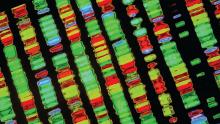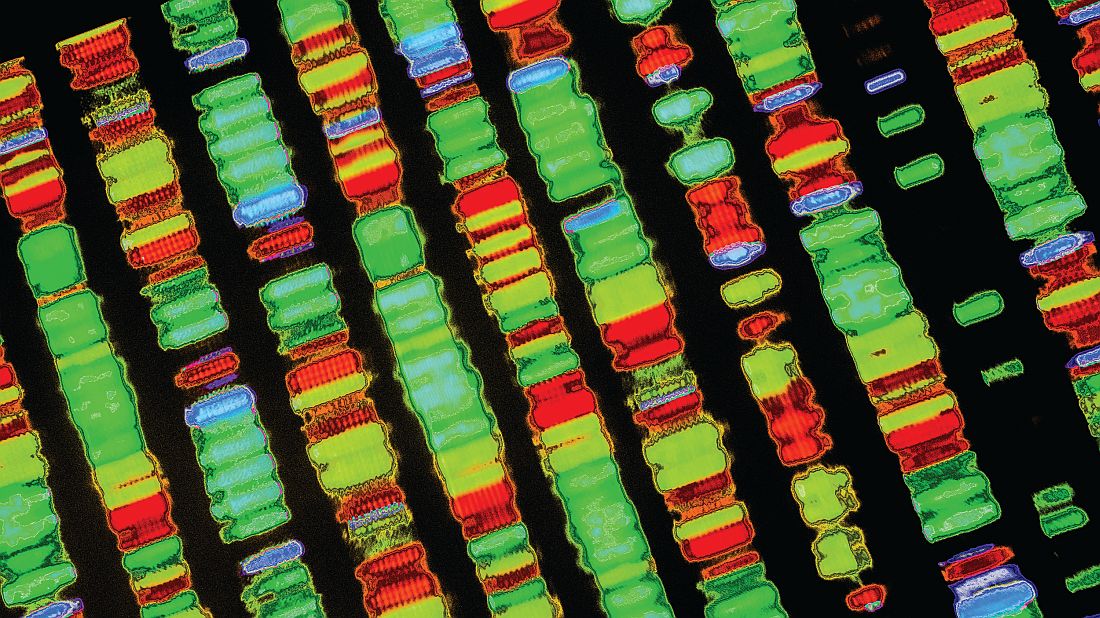User login
Men with schizophrenia and healthy women who were exposed to childhood trauma have shorter leukocyte telomere length (LTL) than do their counterparts in both groups, a small study shows.
“This converse sex-association in schizophrenia compared to the healthy controls is yet another measure suggesting that the pathobiology of schizophrenia may lie, in part, in the mechanisms related to sexual differentiation,” wrote Gabriella Riley, MD, of the department of psychiatry at New York University, and her associates.
To conduct the study, Dr. Riley and her associates recruited 48 inpatients and outpatients with schizophrenia and schizoaffective disorders, as defined by the DSM-5, who were stabilized on medication. Eighteen controls were recruited from postings in the area and Internet recruitment efforts, the researchers reported (Schizophr Res. 2018. doi: 10.1016/j.schres.2018.02.059).
After analyzing the data, Dr. Riley and her associates found that the They also found larger correlations between LTL reductions among men with schizophrenia who had been exposed to early trauma but not in women with schizophrenia (–0.320 vs. 0.447) with such exposure. Conversely, larger correlations in LTL reductions were found among healthy women who had been exposed to early trauma, compared with the male controls (–0.275 vs. 0.688).
To read the full study, click here.
Men with schizophrenia and healthy women who were exposed to childhood trauma have shorter leukocyte telomere length (LTL) than do their counterparts in both groups, a small study shows.
“This converse sex-association in schizophrenia compared to the healthy controls is yet another measure suggesting that the pathobiology of schizophrenia may lie, in part, in the mechanisms related to sexual differentiation,” wrote Gabriella Riley, MD, of the department of psychiatry at New York University, and her associates.
To conduct the study, Dr. Riley and her associates recruited 48 inpatients and outpatients with schizophrenia and schizoaffective disorders, as defined by the DSM-5, who were stabilized on medication. Eighteen controls were recruited from postings in the area and Internet recruitment efforts, the researchers reported (Schizophr Res. 2018. doi: 10.1016/j.schres.2018.02.059).
After analyzing the data, Dr. Riley and her associates found that the They also found larger correlations between LTL reductions among men with schizophrenia who had been exposed to early trauma but not in women with schizophrenia (–0.320 vs. 0.447) with such exposure. Conversely, larger correlations in LTL reductions were found among healthy women who had been exposed to early trauma, compared with the male controls (–0.275 vs. 0.688).
To read the full study, click here.
Men with schizophrenia and healthy women who were exposed to childhood trauma have shorter leukocyte telomere length (LTL) than do their counterparts in both groups, a small study shows.
“This converse sex-association in schizophrenia compared to the healthy controls is yet another measure suggesting that the pathobiology of schizophrenia may lie, in part, in the mechanisms related to sexual differentiation,” wrote Gabriella Riley, MD, of the department of psychiatry at New York University, and her associates.
To conduct the study, Dr. Riley and her associates recruited 48 inpatients and outpatients with schizophrenia and schizoaffective disorders, as defined by the DSM-5, who were stabilized on medication. Eighteen controls were recruited from postings in the area and Internet recruitment efforts, the researchers reported (Schizophr Res. 2018. doi: 10.1016/j.schres.2018.02.059).
After analyzing the data, Dr. Riley and her associates found that the They also found larger correlations between LTL reductions among men with schizophrenia who had been exposed to early trauma but not in women with schizophrenia (–0.320 vs. 0.447) with such exposure. Conversely, larger correlations in LTL reductions were found among healthy women who had been exposed to early trauma, compared with the male controls (–0.275 vs. 0.688).
To read the full study, click here.
FROM SCHIZOPHRENIA RESEARCH

